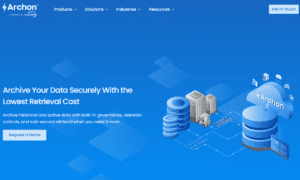Software is what you create. Before users can see it, you must be certain that it functions correctly. This is why there are testing companies. The majority of development teams are unable to conduct their own testing. They don’t have time. Or they don’t have the necessary abilities. Software testing companies use two approaches: manual testers follow written test cases step-by-step, while automated tools repeatedly run the same checks. Both methods identify distinct issues. Bugs are discovered early in the development process by competent software testing firms. They verify that the software performs as intended by the company and as users would expect. Quality testing companies can be identified by their satisfied customers, timely project completion, and staff members who are knowledgeable about both new and old technologies. It’s a rare combination.
Why Should Your Project Use Software Testing?
Software testing involves the use of unit, integration, system, and user acceptance tests. These verify that every component and the entire application function properly both in typical scenarios and when issues arise.
In order to identify issues with the way things appear and function that automated tests overlook, committed manual QA specialists also test by hand.
These days, software runs in the cloud and on phones. It uses microservices and APIs to connect to other programs. Testing ensures that everything functions.
To Protect Your Brand Reputation
Software testing prevents your company from making unwarranted headlines. Public software failures harm a brand’s reputation by upsetting customers, compromising security, and eroding consumer trust. By investing in thorough testing, you can protect your brand from the reputational catastrophes that befall rivals who skimp on quality control.
Testing finds exploitable flaws before hackers do, averting data breaches that result in fines from the government, lawsuits from customers, and years of negative publicity that erodes consumer confidence. Proactive testing is essential for C-suite risk management since security flaws have the potential to severely damage a brand’s reputation.
To Protect Your Revenue
Consider comprehensive software testing to be your company’s financial insurance policy. The company loses money right away from lost sales when software malfunctions, whether it’s freezing while a customer tries to pay, crashing during a busy sale, or leaking customer data. Worse yet, it frequently loses those clients permanently as they become irate and switch to a rival. Testing protects your income in exactly this way:
- Preventing Expensive Defects: Before software is released, automated tests methodically search for bugs. This prevents customers from leaving their shopping carts and never returning because of broken features, unsuccessful transactions, or system failures.
- Managing High Traffic: Stress testing mimics the effects of thousands of users simultaneously using your software, such as during a significant sale. This guarantees that during these periods of high revenue, the application remains fast and that essential features like the checkout process and payment systems continue to operate without hiccups.
- Securing Every Sale: End-to-end testing examines the complete purchase process from beginning to end for an online store. It confirms that the shopping cart correctly calculates costs, the payment gateway completes transactions without errors, and the order is sent to the warehouse.
- Preserving Customer Satisfaction and Loyalty: User experience testing finds small annoyances that drive away customers, like buttons that are hard to understand, websites that load slowly, or complicated procedures to complete a task. You can preserve your consistent flow of subscription fees and repeat business by removing these obstacles and guaranteeing a dependable and seamless experience that entices clients to return.
To Comply with Law and Regulations
By including simple, regular checks in your development, you can avoid regulatory surprises.
- Validation of the Legal Framework: Software testing enables you to automatically compare every new feature to the precise regulations that you need to adhere to (such as financial or privacy laws). You receive a simple pass/fail report, which lets you know right away if there are any legal violations that might lead to an audit or service suspension.
- Methods for Protecting Data: Software testing ensures that all sensitive data is secured, that only authorized individuals can view it, that all access is recorded, and that data is rendered unreadable when sent or stored. These tests demonstrate to courts and auditors that you take proactive steps to stop misuse and leaks.
- Compliance with Industry-Specific Standards: Whether you work with drug data, aircraft controls, or power plant systems, software testing creates realistic simulations that adhere to the strictest safety or quality standards in your industry. By passing these tests, you can be sure that your software remains secure and compliant in real-world scenarios.
To Cut Costs
Testing avoids later, more expensive costs. Bugs are inexpensive to fix during development, and you can prevent system failures and emergency patches.
- Less Urgent Repairs: You can avoid costly last-minute scrambles to fix issues when you discover bugs before customers do. Additionally, no one is required to recover lost data. If not, several teams must halt their work and address the issue immediately.
- Debugging Takes Less Time: It takes a few hours to fix code errors during development. However, it takes days for customers to report bugs. Engineers must figure out how to replicate the bug, identify the root cause, and coordinate system-wide fixes. This supports the work of other teams as well.
- Testing Automation Saves Money: Once test scripts are written, hundreds of scenarios are automatically checked. They simultaneously test various iterations of your code. Previously, manual testing took days, but now it only takes a few hours. Perhaps 20 to 40 percent less time is spent on repetitive testing by engineers, freeing them up to work on other projects.
- Reduced Expenses for IT Upkeep: Customer service takes up less time for engineers. Small bits of code are checked by unit tests. Module compatibility is verified by integration tests. To find errors and coding standard violations, developers check each other’s work.
- Continuous Integration Reduces Cost: When developers merge their code, tests are automatically executed. They immediately identify issues between various code segments, allowing developers to address them as soon as possible. Later testing and a last-minute rebuild are not necessary. Features are less expensive to develop and are released more quickly.
- Less Resources Spent: Performance tests show you how much memory, processing power, and network capacity your apps are consuming on your servers. You can see what you truly need once you are aware of this. Servers that are not intended for use are not bought. You save money on hardware and your apps operate quickly.
To Mitigate Risks
Resolving problems during the design or coding stages, when a developer can do so in a matter of minutes, increases customer trust in your product.
- Systems for Preventing Defects:The most crucial components, such as user logins and payment processing, are tested automatically before your software is made public. These tests ensure that useful error messages appear when something goes wrong and assist you in identifying computation errors.
- Procedures for Ensuring Quality: To identify important bugs early and lower the chance of late-stage debugging, test leaders first identify which features (like order processing or inventory updates) handle the most rules or change the most frequently. There, they subsequently carry out targeted test cycles.
- Finding Vulnerabilities in Code: Automated tools look for issues that might cause your software to crash or leak data. They search for things like mismatched connections between various services, security flaws that hackers could take advantage of, and code that slows down the system.
- Protection of Business Continuity: Testing is also necessary for peak traffic. When servers malfunction, what happens? When do databases fail? Billing must continue to function. Authentication is unbreakable. Orders must be processed without someone stepping in to make manual corrections.
- Protecting the Customer Experience: Extensive software testing helps avoid annoying bugs that could drive customers to a competitor. In order to accomplish this, testers mimic the typical user journeys through the program, such as making a purchase, modifying account preferences, or navigating the dashboard. They carefully verify during these simulations that everything on the screen appears consistent and functions as intended, that pages load rapidly, and that forms accept or reject information appropriately.
- Verification of Regulatory Compliance: Testing allows you to demonstrate compliance and evade penalties, legal action, or forced shutdowns by associating each industry or legal requirement (such as GDPR data handling, PCI payment security, or HIPAA privacy) with particular test cases and generating audit-ready logs.
- Guaranteed Performance Reliability: In order to prevent public crashes during busy business times, such as product launches or holiday sales, when the greatest number of customers observe malfunctions and post about them on social media, load testing and stress testing identify system breaking points under real-world usage.
To Boost Time to Market
By preventing significant delays in the development process, software testing expedites your launch date. By speeding up problem-solving cycles, it keeps the project on schedule for its scheduled release date.
Here’s how various testing methods accomplish this:
- Automated Regression Testing: Automated tests run continuously (often within hours) as developers add new code to see if the changes break any features that already exist. This avoids a scenario in which engineers must manually spend days tracing down a series of errors throughout the entire system, causing the development process to come to a complete halt.
- Feature Flag Testing: You can test a new feature on a small group of users before releasing it to the general public. There is little risk involved in testing its functionality in the real world. You can disable it without impacting all of your users if something is amiss. This speeds up your response to the market by condensing a process that once required a month of validation into a week-long cycle of rapid feedback and enhancements.
- Parallel Testing Environments: Automated tests can run concurrently in several copies of your software (such as the development version, the staging version, and the nearly-ready version) rather than testing one item at a time. This enables developers to continue working without interruption by removing the traditional bottleneck of waiting for one testing phase to be finished entirely before the next one can even begin.
- Performance Baseline Validation: Tests that mimic user traffic are conducted from the very beginning of development to determine whether the software is quick enough and able to manage the anticipated load. By doing this, you avoid a last-minute situation just before launch, where you find out the software is too slow and have to postpone the entire release in order to make emergency speed optimizations.
To Control Quality and Gain Market Competitiveness
By producing consistently dependable products, successful businesses see testing as a means of generating revenue and gaining market share from rivals who forego thorough testing. Customers start recommending your products as the dependable option, which leads to natural market growth.
- Release Dependability: Test plans that cover stress scenarios (high user load), performance benchmarks, and compatibility checks (across various operating systems, browsers, and network conditions) ensure that every component satisfies your predetermined thresholds and ensures consistent behavior in every environment that your customers use.
- Consistency in the User Experience: Software testing serves as your application’s trial run. It does this early on, before customers ever see the product, but it imitates the actions of actual users, such as completing purchases, navigating between pages, and filling out forms. This procedure identifies issues such as malfunctioning buttons, visual hiccups, or sluggish page loads. Every customer will have a smooth and fulfilling experience if these issues are resolved quickly. This seamless experience is what encourages customers to return for additional purchases and refer others to your product.
- Positioning in a Competitive Market: By keeping an eye on a few key metrics, you can determine the quality of your software, including how frequently it is available and does not crash (uptime), how quickly it reacts to user input, and how many bugs were overlooked prior to release. You can verify that your software is more dependable and stable than that of your rivals by comparing these figures to industry norms. This outstanding dependability becomes a huge asset that helps you attract new customers and keep hold of current ones.
Review of Top 10 Software Testing Companies for Your Project
Deloitte
Deloitte is a huge international provider of professional services and consulting. Although it provides software testing, it is not a stand-alone service that you would purchase separately. Rather, its testing services are nearly always a component of more complicated, larger projects.
The company’s primary strength is assisting government organizations and big businesses with full digital transformations. This means that in addition to testing the software, they also assist in project management, business process redesign, and the integration of new technology with legacy systems. Deloitte can oversee the entire project from beginning to end for a large company that needs to completely revamp its IT infrastructure.
For very large, well-funded companies with complicated and regulated projects, such as those in banking or healthcare, Deloitte is a great fit. Having a single partner who manages both the technical aspects, such as testing, and the high-level business strategy is beneficial for these customers.
Given its premium brand and the scope of its work, Deloitte’s services are expensive. It may not be a perfect match for startups and small businesses due to its high cost. These businesses frequently lack funding and only require a dedicated team to test their software – a more targeted and cost-effective service.
Booz Allen Hamilton
Renowned consulting firm Booz Allen Hamilton is especially well-known for its IT contracting work with the US federal government. Though not strictly a “software testing company” in the commercial sense, Booz Allen has talented development teams that produce large-scale software systems for government clients (many of which use Microsoft technologies).
It frequently wins large contracts to build or modernize critical systems for intelligence, military, and civil organizations. Booz Allen, for example, was awarded a $419 million contract to modernize the IT infrastructure of the National Science Foundation. Data systems, secure web portals, quality assurance services, and more are commonly included in these kinds of projects.
Booz Allen is a leading option for software testing outsourcing in highly regulated industries because of its emphasis on software at scale for “mission systems” and the qualified personnel it hires.
Consider the federal government, the military, and other industries where strict compliance and security clearance are required. Booz Allen works almost exclusively on high-budget, highly regulated projects. Usually, it wouldn’t submit a bid at all for a mid-sized commercial QA project.
Belitsoft
Belitsoft is an offshore software testing business that serves as a specialized testing facility for customers all over the world. It offers specialized knowledge at a fair price through remote Quality Assurance (QA) services. Businesses in the UK consider these services to be nearshore. By handling all testing, Belitsoft expedites overall product improvement, allowing a client’s developers to focus on developing new features.
Key Advantages
- Bug-Free Software: The offshore QA teams at Belitsoft strive to guarantee that software satisfies all necessary requirements and is delivered without errors.
- Time savings: All bug-related tasks are handled by the testing engineers. The development process is streamlined since the internal team just needs to examine thorough reports and address any problems found.
- Remote Expertise: Professional testers with a wide range of backgrounds make up the company’s sizable pool. This effectively serves as a client’s remote testing center by guaranteeing that a specialist with the necessary technical skills and industry knowledge can be assigned to any project at any time.
- Excellent Cost-Effectiveness: Belitsoft offers substantial cost savings when hiring QA engineers from outside of expensive nations like the US, UK, or Canada. Time and money are saved by the company’s well-established procedures for hiring more QA staff.
Types of Testing Services
Belitsoft offers a variety of testing services to satisfy different software needs.
- Automated Testing: To expedite deployment times, this service makes use of automated QA testers. Through automation, the team can test software frequently and provide timely feedback on the most recent updates, resulting in a product free of bugs.
- Manual Testing: Manual testers find hidden defects that automated tools might miss by assessing the application’s usability, user experience, and device compatibility. A thorough report on the product’s quality is the end result.
- Mobile Testing: The team works with native, hybrid, and responsive apps to test mobile applications for usability, functionality, performance, and convenience in order to guarantee a flawless product when it is deployed.
- Web Testing: Belitsoft, a top web testing firm, assists in identifying problems such as broken payment gateways or broken web forms. Prior to a site’s launch, their UI/GUI testing verifies all interactive components to avoid serious mistakes and guarantee a flawless user experience.
- Data Migration Testing: Regardless of the cause of the migration – such as outdated technology or system consolidation – the migration testing team confirms that data has been successfully transferred from a legacy system to a new one.
- Regression Testing: Belitsoft serves as a partner to assist in the development and upkeep of regression testing for web apps and associated mobile apps on iOS and Android for companies that consider this to be a weakness.
Application in Industry
For over two decades, Belitsoft has operated as an offshore software testing company. Its services are economical because they provide high-quality products at reasonable costs.
The business has a track record of successfully growing teams. Belitsoft put together a team of 100 experts, including 30 developers and 70 QA engineers, for a cybersecurity case study. The client saw a 40% reduction in development and testing costs as a result of this integration.
Belitsoft’s employees provide software testing services for a variety of sectors, such as cybersecurity, e-learning, IT, healthcare, and financial services.
CGI
CGI is a huge, global consulting and information technology firm. It employs more than 95,000 people in more than 40 nations worldwide. From developing a testing strategy to carrying out the tests, the company offers a full range of software testing services.
CGI’s worldwide delivery model is one of its main advantages. This means it can combine teams in the same nation, teams in less expensive offshore locations, and teams working on-site with a client. This strategy lowers risk.
Additionally, the business makes use of its own proprietary software tools to speed up and improve the efficiency of testing. One of its tools, for instance, can generate a significant portion of the test cases required for a project automatically.
CGI mainly collaborates with big businesses and establishments in industries like healthcare, energy, and finance. With documented instances where it drastically cut down on manual testing time and automated a significant portion of the testing process, resulting in significant cost savings, it has a track record of producing results for these kinds of clients.
CGI typically charges high prices, particularly when working directly with Fortune 500 companies or governments. They frequently have rigorous contracts and operate on a time-and-material or fixed-price basis. CGI is renowned for completing complex integrations, defense and intelligence systems, and national government portals successfully.
In conclusion, if a big business needs a partner to oversee a complicated, extensive software testing program, CGI is a great option. However, CGI’s large and structured approach is probably not the best fit for a startup or smaller business with a tight budget that only needs a small, committed testing team.
Cognizant
Comprehensive software testing is one of the many services that Cognizant, a significant provider of IT services, provides. It has extensive experience working with intricate systems in well-known sectors like healthcare and finance. Tens of thousands of engineers work for the company worldwide. Hiring developers from India lowers costs when compared to hiring in the US or Europe. Cognizant can quickly add more staff to your software testing project as needed.
It is challenging to maintain consistency in quality when there are so many remote engineers. On the same project, you might receive varying skill levels. The continuity and in-depth knowledge required for long-term testing success may also be disrupted by the team members assigned to a client changing or rotating on larger projects.
Another challenge is the company’s size and structure. Because of its size, its internal processes can be convoluted and slow. Delays in communication and a lack of agility may arise from this.
The biggest challenge is that most of your engineering team will be more than twelve hours behind you or ahead of you. You only get a few hours that overlap with US or European time zones because the majority of development takes place in India. Real-time collaboration is only possible in the early morning or late at night. Indian offshore teams speak English. However, you may experience a lack of cultural alignment, poor English proficiency, and excessively formal communication.
Atos
One of the IT services offered by the large, global technology company Atos is software testing. It has a long history of working with very large clients, including governments and large corporations, and is present in many countries across the world.
They are pricey, though, just like other Western consulting firms. Senior Atos consultants in North America or Europe charge exorbitant fees. For routine software development, mid-sized businesses cannot afford Atos. Large contracts, not comparatively small projects, are what Atos is looking for. They can manage all of your IT for years or create whole digital platforms.
There is red tape involved in dealing with Atos. A number of committees and managers must approve changes. That’s slow, and it could be difficult to quickly alter course with Atos. Atos serves Fortune 500 companies with large budgets and a tolerance for slow processes.
Globant
Globant is a large, modern technology company that is renowned for its use of cutting-edge technologies like artificial intelligence, digital innovation, and design. It works with many well-known global brands. Its ability to oversee very large, complex digital transformation projects – of which testing is merely one facet of a bigger picture that also entails redesigning the user experience as a whole – is its main strength as a software testing project.
Globant’s prices are commensurate with the high caliber of their services. Because they usually have high minimum project sizes and budgets, they are too expensive for many small and medium-sized businesses or projects with limited funding.
Additionally, some customers complain about communication difficulties because Globant is a big business with teams dispersed throughout numerous nations and a focus on quick expansion. These problems can occasionally result in sluggish responses or careless information exchange, which can prolong testing cycles.
To sum up, Globant is a great option for a very big company that is going through a significant digital transformation and needs a partner to handle every step of the process, from initial design to final testing, and has the funds to pay for high-end services.
NTT DATA
NTT DATA is a huge, international provider of IT services. Software testing services are provided by their “Quality Engineering and Assurance” division.
They emphasize the use of modern technology heavily in their testing. A key element of their approach is the use of artificial intelligence (AI) to automate testing processes. By doing this, they intend to reduce manual labor that may lead to human error, expedite testing, and find bugs more rapidly. They provide a variety of specialized testing services that are appropriate for big companies.
A notable feature of their business is a dedicated team that focuses only on SAP system testing. Since SAP is a sophisticated program that many big businesses use to run their operations, having specialized testing for it is a big plus.
There are a few important considerations to make when thinking about them as an outsourcing partner. Their biggest strength might work against them. Due to their size, they are in a good position to oversee long-term, complex, and enormous projects for other big companies. They provide stability and an abundance of talent.
One potential consideration is that a company this size might not be as flexible or agile as a smaller, specialized testing firm. It may take longer to get started with them because their processes may be more formal and less flexible.
Tech Mahindra
Tech Mahindra is a massive, international IT corporation. One of their many IT services is software testing, which is often offered by a department called “Quality Engineering and Assurance.”
Their size and range of abilities are their primary advantages. They are prepared to manage large-scale, enterprise-level projects for other major companies. They have the resources to test complex systems, including telecom software, and they employ state-of-the-art techniques like artificial intelligence to help automate some testing tasks.
However, there are a number of reasons why a company like Tech Mahindra might not be the best option for a company that primarily needs expert testing, especially when contrasted with a highly specialized software testing partner.
The distinction between a generalist and a specialist lies at the heart of the problem. Tech Mahindra is a general-purpose IT supplier. Software testing is just one of many services they offer, along with business process outsourcing, system integration, and consulting. This implies that they may not be concentrating all of their attention and resources on improving their testing techniques. The latest testing techniques, trends, and tools are usually more heavily invested in by a company that specializes only in software testing.
Onboarding, communication, and project modification procedures may be more formal and occasionally slower in a very large company like Tech Mahindra. Smaller, more specialized testing firms are usually built to be more flexible and quick to respond to changing client needs, acting more like an integral part of the client’s team.
Their prices may be indicative of their standing as a significant corporate supplier. They probably charge higher prices, which might not be as cost-effective as a company whose whole strategy is centered on providing effective testing services.
In summary, if you are a big business searching for a one-stop shop for a variety of IT services, including testing, Tech Mahindra is a great option. However, a business that specializes in software testing would probably be a better option if your primary objective is to locate a quick, highly skilled, and possibly more affordable partner whose whole focus is on producing software of the highest caliber.
Turing
Turing mainly serves as a global talent platform that uses artificial intelligence to find and screen individual software engineers all over the world.
The main concern is the distinction between using a dedicated testing company and hiring a single tester. The foundation of Turing’s model is staff augmentation. In other words, they assist you in locating and hiring a freelance tester, but after they are on board, you are in charge of overseeing their work, integrating them into your team, assigning them tasks, and making sure their work is of a high standard. With all the associated management overhead, you are effectively adding a remote worker to your payroll.
However, a specialized software testing company offers a managed service. They offer you a full range of services, not just a person. This includes accountability for the final product quality, a defined process for reporting bugs, engineers who carry out the tests, and a team lead who develops the testing strategy. They provide you with a result rather than merely a resource by managing the group and the procedure.
Additionally, software testing is not its area of expertise because it is a generalist platform for all kinds of software developers. This implies that there won’t be a pre-made, end-to-end testing methodology or a specific team structure with engineers and test leads intended to collaborate. The service you receive is determined by the individual you are hiring and their unique set of abilities and experiences.
In conclusion, Turing is a great option if your main goal is to locate a qualified, pre-screened individual tester promptly and you have the internal management structure in place to supervise and guide their work.





























